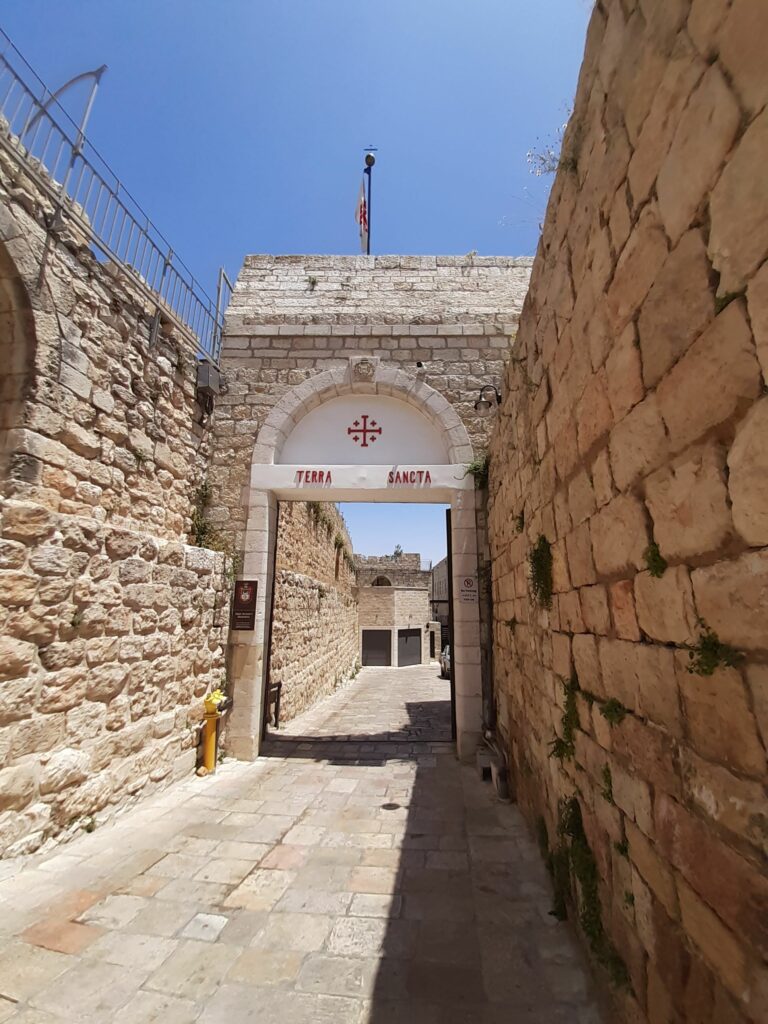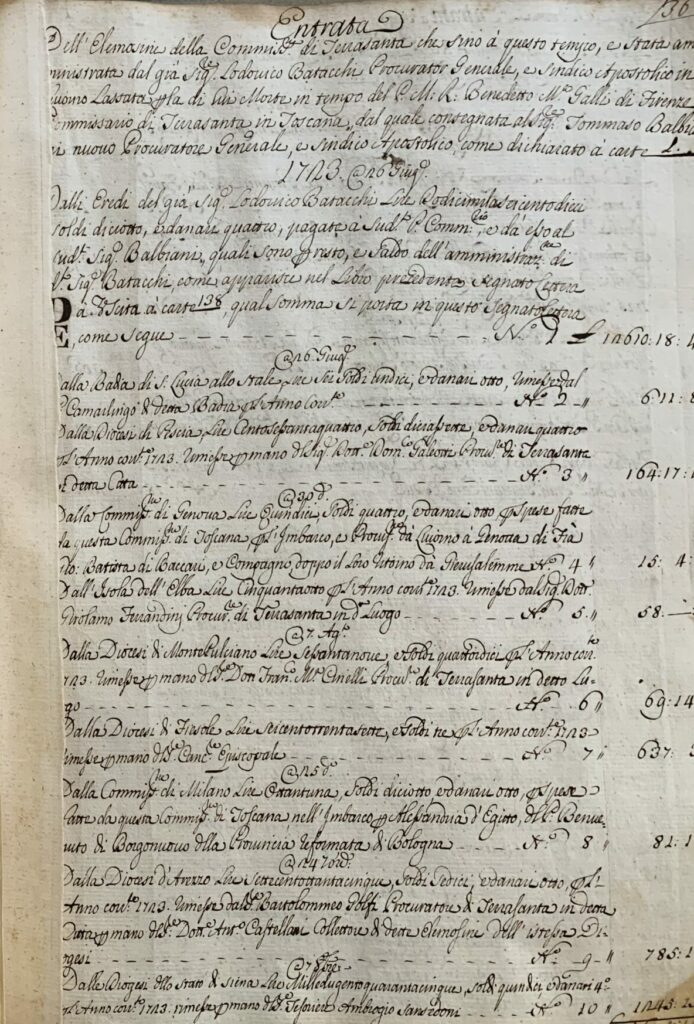The Project

The Franciscan Custody of the Holy Land (Custodia Terræ Sanctæ, established in the 13th century) is a global organization that, thanks to a complex system of alms gathering, has ensured throughout the centuries the maintenance of the Holy Sepulchre and the friars’ presence in the Holy Land.
The EU-funded project ‘HOLYLAB – A global economic organization in the early modern period: The Custody of the Holy Land through its account books (1600-1800)‘ will study the Custody’s economic organization through its account books between 1600 and 1800.
Inspired by recent studies on Franciscan economic thought and accounting in Mediaeval convents, and deploying concepts drawn from organizational studies, HOLYLAB combines an analysis of economic practices on a local, regional and global level with a study of the organizational structures and the mechanisms that enabled the Custody to function and attain its goals.
The project is based at Department of Political Science, Roma Tre University (as host institution) and at the FBK-ISIG, Trento (second beneficiary). The project is headed by Professor Felicita Tramontana as Principal Investigator.
The objectives of the project are:
- To reconstruct the Custody’s economy, contextualizing it in the framework of the Franciscans’ economic thought and practices and in wider historical events, such as the Counter Reformation and the globalizing processes that characterized the period under consideration.
- To shed light on the organizational structures and the mechanisms that enabled the Custody to attain its goals and on the organizational changes it underwent during the project time frame.
- To make freely available the data extracted from the lists of incomes and expenses of the commissariats and the Custody through the construction of an open-access online database.
More broadly, the project will also contribute to current research on issues such as the global circulation of people, money and objects and the organization of early modern institutions.
In order to achieve such objectives, the project’s analysis will rely on a rich and unstudied corpus of account documents issued by the Custody’s headquarters – the St. Saviour convent in Jerusalem – and its commissariats located in several Franciscan provinces.

